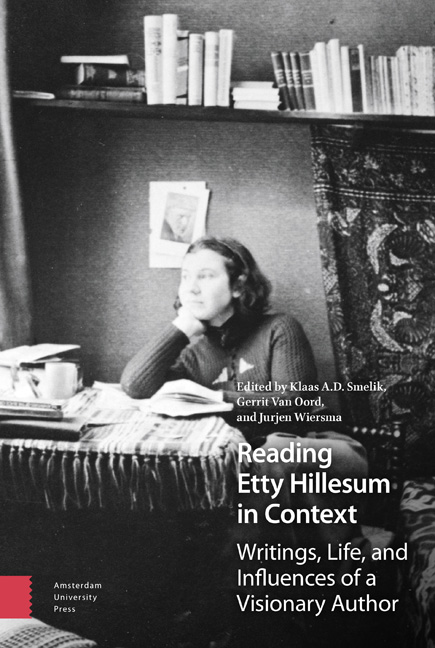23 - Ulrich Beck and Etty Hillesum
Published online by Cambridge University Press: 06 January 2021
Summary
Abstract
The chapter that Ulrich Beck dedicated to Etty Hillesum in his book Der Eigene Gott [A God of One's Own] has played an important role in the international reception of Etty Hillesum's work. Nevertheless, there are lingering doubts about Beck's rendering of Hillesum's image of God. The author investigates Beck's vision in this article. According to his analysis, Beck was fascinated by Etty Hillesum and her image of God, and felt a strong affinity for her. He goes on to point out, however, that having an affinity for someone does not create a sufficient basis for analysis, and he criticizes Beck for his examination of Hillesum's texts, which was not done carefully enough to understand what Etty Hillesum really meant when she wrote about God.
Keywords: Ulrich Beck, Der Eigene Gott, academic reception, New Age, Elie Wiesel, God, personal God, Etty Hillesum
The German sociologist Ulrich Beck, who passed away in January 2015, was well known amongst Etty Hillesum scholars. For Etty Hillesum's diaries were the subject of the first chapter of his 2008 book, Der eigene Gott: Von der Friedensfähigkeit und dem Gewaltpotential der Religionen [A God of One's Own: Religion's Capacity for Peace and Potential for Violence]. In that first chapter, Beck makes use of Hillesum's diary notes to develop his religious-sociological notion of “a god of one's own.”
Hillesum researcher Maria Gabriella Nocita made a thorough study of Beck's ideas, publishing an article in Italian in 2013 in which it is apparent that she does not agree with Beck's view on Etty Hillesum. Nocita opposes Beck's analysis that Hillesum has written of a “Dio personale” [a personal God], saying instead that Hillesum wrote of a “Dio persona” [God as a person], as did, for instance, Saint Augustine. According to Nocita, by assuming that Hillesum wrote about a personal God instead of God as a person, Beck has misunderstood Hillesum's diaries.
In this essay, I too refer to Beck's interpretation and ask: Where did Beck hit the mark and where did he miss? I compare his views to conclusions I have drawn from my own research on the varying meanings of the word “God” in Etty Hillesum's writings.
- Type
- Chapter
- Information
- Reading Etty Hillesum in ContextWritings, Life, and Influences of a Visionary Author, pp. 445 - 458Publisher: Amsterdam University PressPrint publication year: 2018



